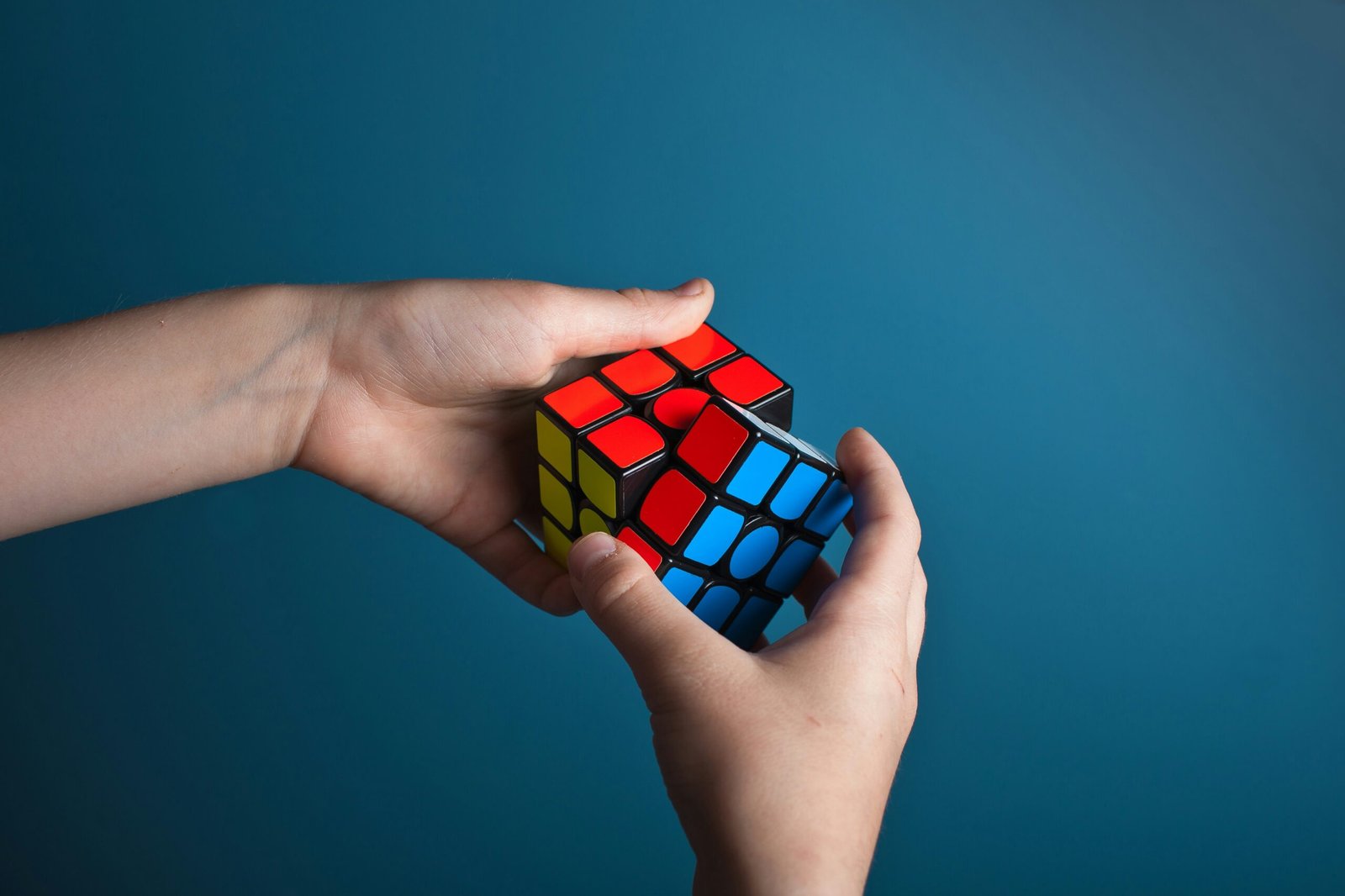The Importance of Personal Development: A Journey to Self-Discovery and Growth
Firstly, personal development encourages individuals to seek new knowledge, acquire new skills, and expand their horizons. Whether it is through reading books, attending workshops, or engaging in online courses, personal development provides opportunities for individuals to develop their intellectual capabilities and stay updated with the latest trends and developments in their field of interest.
Furthermore, personal development is essential for building resilience and adaptability. In today’s ever-changing world, individuals need to be able to adapt to new situations, overcome challenges, and bounce back from setbacks. Personal development equips individuals with the necessary tools and mindset to embrace change, learn from failures, and persevere in the face of adversity.
Lastly, personal development has a positive impact on overall well-being. When individuals invest time and effort in their personal growth, they experience increased levels of self-confidence, self-esteem, and happiness. They develop a sense of purpose and fulfilment, as they align their actions with their values and aspirations. Additionally, personal development helps individuals manage stress, improve their mental health, and cultivate healthy habits that contribute to their overall well-being.
By actively engaging in personal development activities, individuals can identify their strengths and weaknesses, set goals, and work towards achieving them. This sense of empowerment allows individuals to make informed decisions, take calculated risks, and navigate through life with confidence.
Setting Goals for Personal Development
One of the first steps in personal development is setting goals. Goals provide a sense of direction and purpose, and they help us stay focused and motivated. When setting goals, it is essential to be specific, measurable, achievable, relevant, and time-bound (SMART). Whether it’s improving a particular skill, changing a habit, or working towards a career milestone, having clear goals allows us to track our progress and make necessary adjustments along the way.
Setting specific goals means defining what exactly we want to achieve. Instead of saying “I want to get better at public speaking,” a specific goal would be “I want to deliver a confident and engaging presentation in front of a large audience within six months.” By being specific, we can visualize our desired outcome and create a plan to reach it.
Measurable goals allow us to track our progress and determine whether we are moving in the right direction. For example, if our goal is to lose weight, we can set a target of losing 10 pounds within three months. This way, we can monitor our weight loss journey and make adjustments to our diet and exercise routine if necessary.

Achievable goals are those that are within our reach and capabilities. It’s important to set goals that challenge us but are still realistic. If we set goals that are too far-fetched or unattainable, we may become discouraged and give up. By setting achievable goals, we can maintain our motivation and confidence throughout the personal development process.
Relevant goals are aligned with our values, interests, and long-term aspirations. They should be meaningful and contribute to our overall personal growth. For example, if we are passionate about environmental conservation, a relevant goal might be to reduce our carbon footprint by implementing sustainable practices in our daily lives.
Time-bound goals have a specific deadline or timeframe attached to them. This helps create a sense of urgency and prevents procrastination. By setting a deadline, we are more likely to prioritize our personal development efforts and take consistent action towards achieving our goals.
By following the SMART framework, we can ensure that our goals are specific, measurable, achievable, relevant, and time-bound. This allows us to stay focused, track our progress, and make necessary adjustments along the way.
Continuous Learning and Skill Development
Personal development involves continuous learning and skill development. It is about acquiring new knowledge, expanding our horizons, and honing our existing skills. Learning can take various forms, such as reading books, attending workshops or seminars, taking online courses, or seeking mentorship. By investing in our personal growth, we not only increase our knowledge and expertise but also boost our confidence and open up new opportunities.
Furthermore, personal development is not limited to acquiring technical skills. It also encompasses developing soft skills such as communication, leadership, time management, and emotional intelligence. These skills are crucial for personal and professional success, as they enable us to navigate relationships, collaborate effectively, and manage our time and emotions.
Continuous learning and skill development are essential in today’s rapidly evolving world. With advancements in technology and changes in the job market, it is crucial to stay updated and adaptable. By continuously learning and developing new skills, we can stay ahead of the curve and remain competitive in our careers.
One way to engage in continuous learning is through reading books. Books provide a wealth of knowledge and insights from experts in various fields. They allow us to explore different perspectives and gain a deeper understanding of complex topics. Reading not only expands our knowledge but also enhances our critical thinking and problem-solving abilities.
Attending workshops or seminars is another effective way to learn and develop new skills. These events provide opportunities to learn from industry professionals and network with like-minded individuals. Workshops often involve interactive sessions and hands-on activities, allowing participants to apply their learning in real-world scenarios.
Online courses have become increasingly popular in recent years, offering flexibility and convenience. These courses cover a wide range of topics and are often taught by experts in the field. They provide structured learning experiences and allow individuals to learn at their own pace. Online courses also often include assessments and certifications, which can add value to one’s resume.
Seeking mentorship is another valuable way to learn and develop skills. Mentors can provide guidance, support, and valuable insights based on their own experiences. They can offer advice on career progression, skill development, and personal growth. Mentors can also help individuals navigate challenges and make informed decisions.
In addition to technical skills, developing soft skills is equally important.
- Soft skills are personal attributes that enable individuals to interact effectively with others and navigate various situations.
- Communication skills are vital for expressing ideas clearly, listening actively, and building strong relationships.
- Leadership skills are essential for motivating and inspiring others, driving change, and achieving goals.
- Time management skills are crucial for prioritizing tasks, managing deadlines, and maintaining work-life balance.
- Emotional intelligence is the ability to recognize and manage one’s emotions and understand others’ emotions, leading to better interpersonal relationships and effective teamwork.
In conclusion, continuous learning and skill development are integral to personal development. By investing in our growth, we can expand our knowledge, enhance our skills, and adapt to the changing demands of the world.
In addition to this personal development provides us with the necessary skills to handle criticism and rejection. As we work on improving ourselves, we become more open to feedback and constructive criticism. We learn to separate our self-worth from external opinions and use feedback as a tool for growth. This ability not only strengthens our self-confidence but also allows us to handle rejection with grace and resilience.
Moreover, personal development helps us develop a growth mindset, which is essential for building self-confidence and resilience. A growth mindset is the belief that our abilities and intelligence can be developed through dedication and hard work. When we adopt a growth mindset, we see challenges as opportunities to learn and improve rather than as threats to our self-worth. This mindset allows us to approach obstacles with a positive attitude, knowing that we have the ability to overcome them.
In addition, personal development fosters self-awareness, which is crucial for building self-confidence and resilience. By engaging in self-reflection and introspection, we gain a deeper understanding of our strengths, weaknesses, values, and beliefs. This self-awareness helps us make informed decisions, set realistic goals, and align our actions with our values. It also enables us to recognize and manage our emotions effectively, which is essential for maintaining resilience in the face of adversity.
Furthermore, personal development encourages us to build a support network of like-minded individuals who can provide guidance, encouragement, and accountability. Surrounding ourselves with positive and supportive people helps us stay motivated, inspired, and focused on our personal growth journey. These individuals can offer valuable insights, share their experiences, and provide a sense of belonging and connection.
Having a strong support network enhances our self-confidence and resilience by reminding us that we are not alone in our struggles.
Improving Relationships and Communication
Personal development also has a significant impact on our relationships and communication skills. As we develop self-awareness and emotional intelligence, we become more attuned to our own emotions and those of others. This heightened awareness allows us to communicate effectively, resolve conflicts, and build meaningful connections with others.
Furthermore, personal development helps us cultivate empathy and understanding, enabling us to relate to others on a deeper level. It allows us to appreciate diversity, respect different perspectives, and foster a sense of inclusivity. By improving our relationships and communication skills, we create a positive and supportive environment that enhances both our personal and professional lives.
When we engage in personal development, we gain a better understanding of our own communication style and how it impacts our interactions with others. We become more conscious of our body language, tone of voice, and choice of words, ensuring that our messages are clear and well-received. This self-awareness also allows us to adapt our communication style to different situations and individuals, enhancing our ability to connect with others effectively.
Moreover, personal development helps us develop active listening skills, which are crucial for effective communication. Active listening involves fully focusing on the speaker, understanding their perspective, and providing feedback that shows we have understood their message. By practising active listening, we demonstrate respect and empathy, creating a safe and open space for meaningful conversations.
Through self-reflection and self-regulation, we learn to manage our emotions and respond to conflicts in a calm and constructive manner. We develop the ability to see situations from multiple perspectives and find common ground, leading to mutually beneficial resolutions.
Taking Care of Physical and Mental Well-being
Personal development is not just about intellectual growth; it also encompasses taking care of our physical and mental well-being. A healthy body and mind are essential for overall happiness and success. Engaging in regular exercise, maintaining a balanced diet, getting enough sleep, and managing stress are all crucial aspects of personal development.
Regular exercise not only helps us maintain a healthy weight and improve our physical fitness but also releases endorphins, which are natural mood boosters. Whether it’s going for a run, practicing yoga, or participating in a team sport, finding an activity that we enjoy and can commit to on a regular basis is vital for our physical well-being.
Furthermore, maintaining a balanced diet is essential for fueling our bodies with the nutrients they need to function optimally. Consuming a variety of fruits, vegetables, whole grains, and lean proteins can provide us with the energy and vitamins necessary for our daily activities. Additionally, staying hydrated by drinking plenty of water throughout the day is crucial for our overall health and well-being.
While physical well-being is important, personal development also involves nurturing our mental health. One way to promote mental well-being is by practising mindfulness and meditation. These practices involve focusing on the present moment, acknowledging our thoughts and feelings without judgment, and cultivating a sense of inner calm and awareness. Research has shown that regular mindfulness and meditation practice can reduce stress, improve concentration, and enhance overall mental well-being.
Additionally, seeking therapy or counselling can be beneficial for individuals facing challenges or struggling with their mental health. A trained therapist can provide guidance, support, and tools to help individuals navigate through difficult emotions and develop coping strategies. Therapy sessions can also provide a safe space for individuals to express themselves and gain insights into their thoughts, feelings, and behaviours.
Engaging in activities that promote relaxation and self-care is another important aspect of personal development. This can include hobbies such as reading, painting, gardening, or listening to music.
Taking time for ourselves and doing activities that bring us joy and relaxation can help reduce stress, improve mood, and enhance overall well-being.



